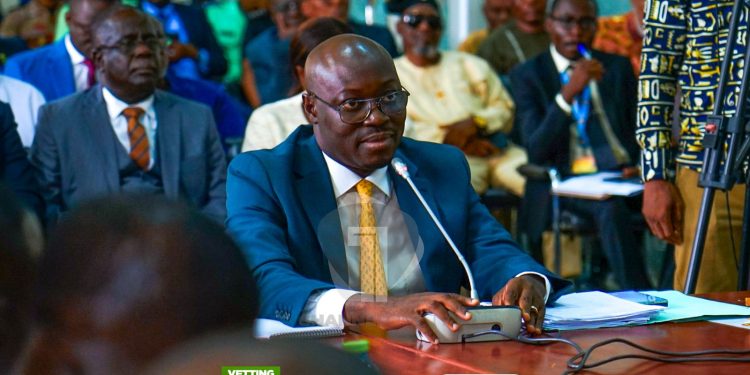Samuel Dubik Mahama, Managing Director of the Electricity Company of Ghana (ECG), has praised the substantial investments made towards a cashless system, which have contributed to a significant reduction in the company’s system losses, now lower than in 2023.

Mahama noted that the ECG’s losses have decreased from 30% to 26%, reflecting considerable progress.
In an interview with Bernard Avle on The Point of View on Channel One TV, Mahama explained, “Within that period [2023], digitalization took the front stage, and we were using systems to close the gap.
As I speak, most of our customer interactions are now codified and part of a paperless workflow.
For example, if you want a new service connection, you can do it through our app or webpage.
I can confirm that our total system loss is now at 26%, an improvement from 2023.”
When asked if this reduction represented an improvement, Mahama confirmed, “Yes.”
He also expressed concerns about outdated prepaid meters that have exceeded their lifespan, causing them to display negative readings.
Mahama assured that ECG is taking steps to address these issues and close the gap.
“The company’s biggest problems are meters that have surpassed their lifespan but are still in use.
Currently, we’re seeing meters that go into negative readings, which indicates they’re not functioning correctly. Steps need to be taken to fix this,” he stated.
Mahama also highlighted ECG’s operational turnaround, emphasizing that the company has not received capitalization for Capital Expenditure (CAPEX) projects since 2008.
Despite this, ECG has managed to use its operational capital for CAPEX, though Mahama noted that this is generally considered a poor business practice worldwide.
“ECG hasn’t been capitalized for any CAPEX projects since 2008, so this operational turnaround is remarkable because we’re using operational capital for CAPEX, which is typically not advisable,” Mahama explained.
He further mentioned that customers can now acquire meters within a week, significantly reducing the previous waiting period.
























































![[FREE FREE MONEY] Predict and Win a Guaranteed GH¢200 From Us EVERY WEEK](https://wordpress.ghanatalksradio.com/wp-content/uploads/2022/02/Predict-and-Win-Final-09-03-2021-218x150.jpg)
![[Predict & Win – 8th/Oct.] WIN A Guaranteed ¢200 From Us This Week](https://wordpress.ghanatalksradio.com/wp-content/uploads/2021/10/maxresdefault-16-218x150.jpg)
![[Predict & Win – 2nd] WIN A Guaranteed ¢200 From Us This Week](https://wordpress.ghanatalksradio.com/wp-content/uploads/2021/09/maxresdefault-50-218x150.jpg)
![[Predict & Win – 25th] WIN A Guaranteed ¢200 From Us This Week](https://wordpress.ghanatalksradio.com/wp-content/uploads/2021/09/maxresdefault-36-218x150.jpg)
![[Predict & Win – 18th] WIN A Guaranteed ¢200 From Us This Week](https://wordpress.ghanatalksradio.com/wp-content/uploads/2021/09/maxresdefault-23-218x150.jpg)








![[National cathedral] See full list of churches that have contributed since 2018](https://wordpress.ghanatalksradio.com/wp-content/uploads/2020/09/Ghana-National-Cathedral-GhanaTalksRadio-100x70.jpg)



